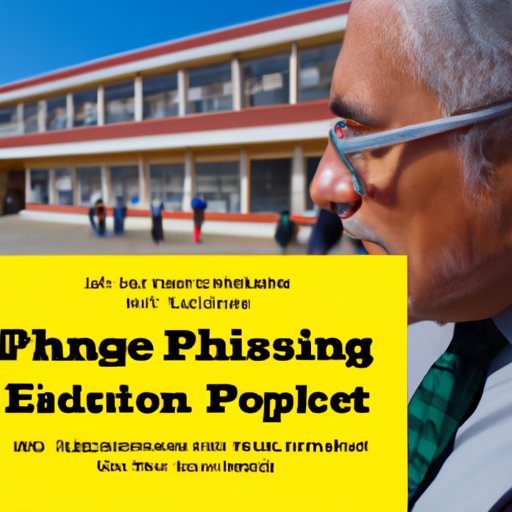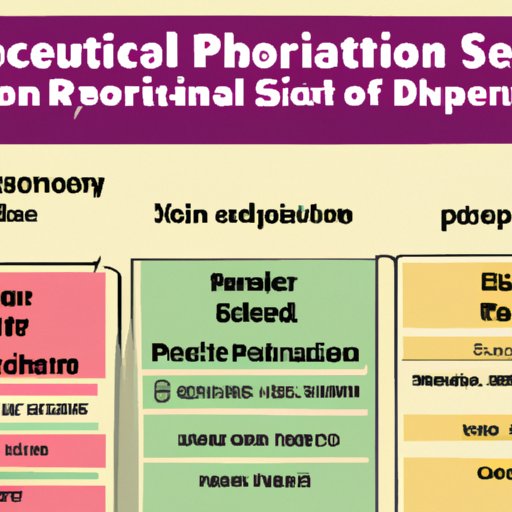Introduction
High school principals are responsible for overseeing the administrative and educational operations of the school. As such, their salaries vary depending on a number of factors, including region, experience, and education level. This article will explore the average salary of high school principals, as well as benefits packages, the impact of experience and education on salaries, comparisons to other education positions, and the link between student performance and principal salaries.
Analyzing Average Salary by State for High School Principals
The average salary of high school principals varies significantly from state to state. According to the Bureau of Labor Statistics, the national median salary for high school principals in 2019 was $94,390. However, there is significant geographic variation, with some states offering much higher salaries than others. For example, in California, the average salary for high school principals was $133,460, while in Mississippi it was just $72,880.
The regional variations in average salary can be attributed to a number of factors. Cost of living is a major factor, as states with higher costs of living tend to offer higher salaries to attract and retain talent. The size of the school district is also important, as larger districts tend to pay more than smaller ones. Additionally, the quality of the school district may also play a role, with districts that have higher test scores and graduation rates paying more to their principals.

Exploring Benefits Packages for High School Principals
In addition to their base salary, high school principals are often eligible for a range of benefits packages. These typically include health and retirement benefits, such as medical, dental, vision, and life insurance, as well as pension plans or 401(k)s. Some districts may also offer additional benefits, such as tuition reimbursement, professional development funds, and even housing allowances.

Examining the Impact of Experience and Education on High School Principal Salaries
Experience and education level play an important role in determining the salary of high school principals. Generally speaking, those with higher levels of education and more years of experience tend to earn higher salaries. For example, those with a master’s degree may earn up to 10 percent more than those with only a bachelor’s degree, and those with 10 or more years of experience may earn up to 20 percent more than those with less experience.

Comparing High School Principal Salaries to Other Education Positions
High school principal salaries can also be compared to other education positions. In general, high school principals earn more than teachers, but less than superintendents. According to the National Center for Education Statistics, the median salary for teachers in 2019 was $62,200, while the median salary for superintendents was $118,900.
Investigating the Link Between Student Performance and Principal Salaries
In recent years, there has been increasing interest in the potential link between student performance and principal salaries. While there is no definitive answer, some studies have suggested that there may be a correlation. For example, one study found that student performance on standardized tests improved when principals were offered bonuses based on test scores. Similarly, another study found that student performance improved when principals were given greater autonomy over staffing decisions.
Conclusion
In conclusion, the salary of high school principals can vary significantly depending on a number of factors, including region, experience, and education level. High school principals are typically eligible for a range of benefits packages, including health and retirement benefits, as well as additional benefits such as tuition reimbursement and housing allowances. Additionally, experience and education level can have a significant impact on salaries, with those with more experience and higher levels of education earning more. Finally, there may be a link between student performance and principal salaries, with some studies suggesting that increased autonomy and bonuses based on test scores can lead to improved student performance.
(Note: Is this article not meeting your expectations? Do you have knowledge or insights to share? Unlock new opportunities and expand your reach by joining our authors team. Click Registration to join us and share your expertise with our readers.)
